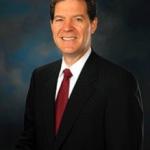The 14-month drama to replace Justice Antonin Scalia on the Supreme Court ended this morning, as Colorado appeals court judge Neil Gorsuch took the oath of office after a 54-45 confirmation vote Friday.
A few religion angles:
First, Gorsuch becomes the only Protestant on the Court again, and the first since 2010, when Justice John Paul Stevens retired. I’m not convinced this matters much, but journalists never tire of pointing it out. It surely is evidence of the decline/end of Protestant hegemony in this country, but at this late date I don’t think that’s much of a story.
It is interesting to me that Gorsuch is an Episcopalian. He fits the mold of legal scholars and advocates who, if Protestant, tend to be evangelicals. Yet Gorsuch’s pedigree — born into Republican politics, Harvard Law, prestigious legal jobs — suggests that mainline Protestants still have an easier path to elite circles (and are certainly more well-represented in them) than evangelicals.
It is interesting that Gorsuch, who presumably believes that marriage is a man and a woman, belongs to a denomination that offers full-throated support for LGBT equality in church and society. Traditionalists might remain wary of Gorsuch, who due to his elite status is much likelier than evangelical Protestants to have many deep and long-standing personal relationships with LGBT people. Polling data show that proximity is the best predictor of support for LGBT rights. Gorsuch’s personal appetite to turn back the tide of gay marriage is likely to be quite small.
This may represent a larger shift in conservative politics and legal thought. While Gorsuch is a noted expert on assisted suicide and euthanasia. His book on the subject was published by New Forum Books, a trade series of Princeton University Press edited by Robert P. George, which may or may not mean much. (Note the right-leaning intellectuals who have also published in the series.)
Obviously, Gorsuch is pro-life, in fulfillment of President Trump’s explicit promise to religious conservatives. Presumably he takes an expansive view of religious liberty that will annoy progressives.
As recently as a few years ago, a conservative jurist with an issue profile like Gorsuch’s would have almost certainly opposed same-sex marriage. And yet he may represent a new mold of legal conservative who understands that the marriage fight is over, while retaining conservative views on other life/sex issues.
Finally, a Washington Post article about the new justice has an item that may be significant:
He also provides the court with something it has lacked since 2010: a Protestant. Gorsuch was raised as a Catholic, but he and his family attend an Episcopal church in Boulder. He joins five Catholics and three Jews on the court.
I have not followed Gorsuch’s career at all. I barely followed his nomination and hearings. But this was the first I heard that he was raised as a Catholic. I do not know anything about why Neil Gorsuch rejected the teachings and authority of the Catholic Church. But knowing more about why he abandoned the Church of his baptism could yield insights into this thinking.
One final observation: A lot of people assume that since the Episcopal Church is liberal, Episcopal laypeople must be liberal. Not so! While Episcopalians are more liberal than evangelicals and even some other mainline Protestants on many issues, there remain plenty of Republican voters in Episcopal pews.











